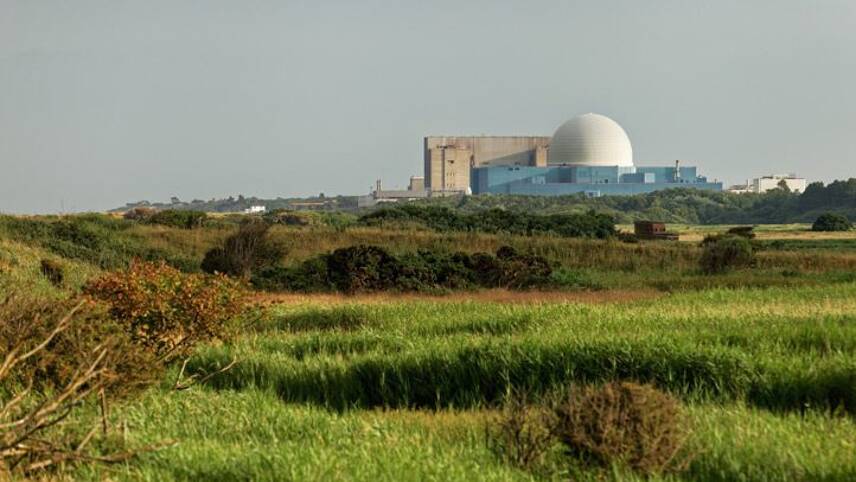Register for free and continue reading
Join our growing army of changemakers and get unlimited access to our premium content

Sizewell nuclear power station located in Suffolk
Labour’s energy spokesperson told the House of Commons yesterday (17 January) that Hitachi’s announcement, which also means a halt of work by the company’s UK nuclear arm Horizon on its other UK project at Oldbury in Gloucestershire, is a “significant blow” to the economy.
He said that the latest move, combined with Toshiba’s decision in November to scrap its plans for a three-reactor plant at Moorside, means that a total of 9.2GW of planned nuclear generation will not be delivered.
Whitehead also accused the government of reacting “far too slowly” to concerns about financing from its potential nuclear partners, including Hitachi’s arm Horizon, adding that government “dithering” had contributed to the axing of Moorside.
He said: “Given that energy is one of the sectors that creates the most carbon, today’s news deepens our profound concern about the government’s ability to meet their own climate targets
But Greg Clark, secretary of state for business and energy, said the UK’s energy security is not at risk as a result of the Wylfa suspension, pointing to figures showing that the electricity margin is forecast to be more than 11 per cent this winter following five years of continual growth.
“Plans for Wylfa are long term and there is time for the market to react to this announcement,” he said.
Clark also told MPs that the government could not have offered Hitachi more support than the proposed package, the details of which he revealed for the first time yesterday.
This comprised three elements: the government taking one-third of the project’s equity, the potential provision of all debt financing required to complete construction and consideration of a contract for difference (CfD), based on a strike price no higher than £75/MW hour.
The secretary of state said that the government could not have taken a larger share of equity in the project because this would have meant it becoming the largest shareholder in the project with responsibility for shouldering delivery and the majority of construction risk.
Clark also said that he could not justify a higher strike price for the CfD given the plummeting costs of renewable options and the wider support for the project which had not been offered to EDF at Hinkley Point C, where a strike price of £97.50 had been agreed.
“The package of support that we were prepared to consider was the limit of what could be justified in this instance.
“We have made a substantial and generous offer, but unfortunately it has not been possible to achieve the outcome that all sides wanted.”
Renewable technologies offer increasingly cost-effective and reliable options compared with nuclear, which is chiefly justified on the grounds that it replaces the baseload generating capacity currently supplied by higher emitting coal and gas plants, he said: “We have also seen a strengthening in the pipeline of projects coming forward, meaning that renewable energy may now be just as cheap, but also readily available.
“In many ways, the challenge of financing new nuclear is one of falling costs and greater abundance of alternative technologies, which means that nuclear is being outcompeted.”
But he said the government remains committed to nuclear through the recently agreed sector deal with the industry, adding that it is considering a proposal from a Rolls-Royce led consortium for a “significant” joint investment in a small modular reactor project.
In addition, he said the Department for Business, Energy and Industrial Strategy is exploring the regulated asset base model for financing nuclear development, which EDF is keen to see used for its next such project at Sizewell, and will be setting out its proposals for this new approach in an energy white paper that is due to be published in the summer.
David Blackman
This article appeared first on edie’s sister title, Utility Week


Please login or Register to leave a comment.